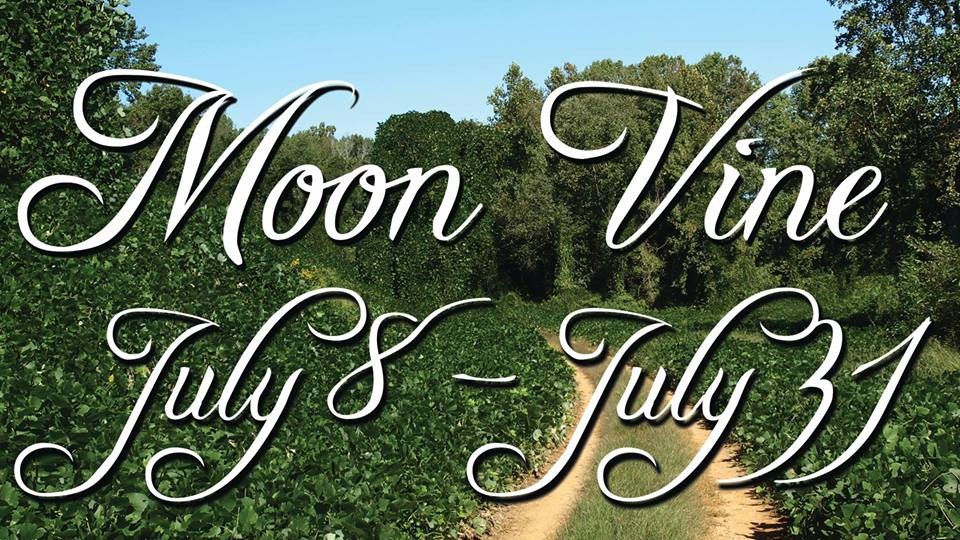I’d like to start this post with an apology. I’m practically running out the door to cover the RNC in Cleveland and the DNC in Philly. In the rush to prepare, I’ve not been able to give Moon Vine, a winner of POTS NewWorks@TheWorks playwriting competition, the treatment it deserves. Nevertheless, I’d like drop a few more pixels on it, in addition to my recent conversation with director Ken Zimmerman.
This is Teri K. Feigelson’s second win. NewWorks mounted her promising lyrical drama Mountain View at TheatreWorks last year, and the script picked up an Ostrander Award for best new play to boot. The good news is, for all it’s tragic underpinnings, Moon Vine is funny, and its narrative structure is stronger than its predecessors As explained in the above link, it’s the story of a brother and sister who have secrets, and their struggle to save or sell a family farm.
Bekka Koch is sympathetic and inviting as a pair of fuzzy house slippers as sister Sele. She’s an earthy herbalist, constant gardener, and accidental spiritualist who talks to her dead father via short wave radio. Dane Van Brocklin is similarly strong as musician/brother Huck. Supporting stock characters are given dimension thanks to Zimmerman’s top-notch cast. The show’s most interesting c 
haracter is also its most abstract— the lurking offstage menace of unchecked Capitalism in Avatars of predatory Agribusiness and Walmart.
Also can somebody give Karin Barile, appearing here as a wacky neighbor, another lifetime achievement award?
Feigelson’s got a voice, but it’s not very distinctive at present, careening recklessly between Beth Henley and Tennessee Williams with a welcome jolt of Rod Serling near the end. An apparent compulsion to write poetic “Suthun,” dialogue gets in the way of writing characters. Too many lines ring false and forced. Cliches like, “Blues ain’t nothing but the truth,” will resonate with some, and clunk for others. But there is a simpleness and integrity to this slow burning ghost story that balances out lyrical pretension, even when it flirts with incredible camp.
I’ve often made a strange-sounding case for more “good plays.” Which is to say I think Memphis has been a conservative market mostly interested in proven, name brand shows where all the kinks were worked out somewhere else. Moon Vine needs editing. It’s got trouble spots, but it’s still good — an easy-breezy way to spend an evening in the theater.
Audiences who’ve enjoyed local work like Jerre Dye’s Cicada and Justin Asher’s Haint will certainly want to give this one a spin.